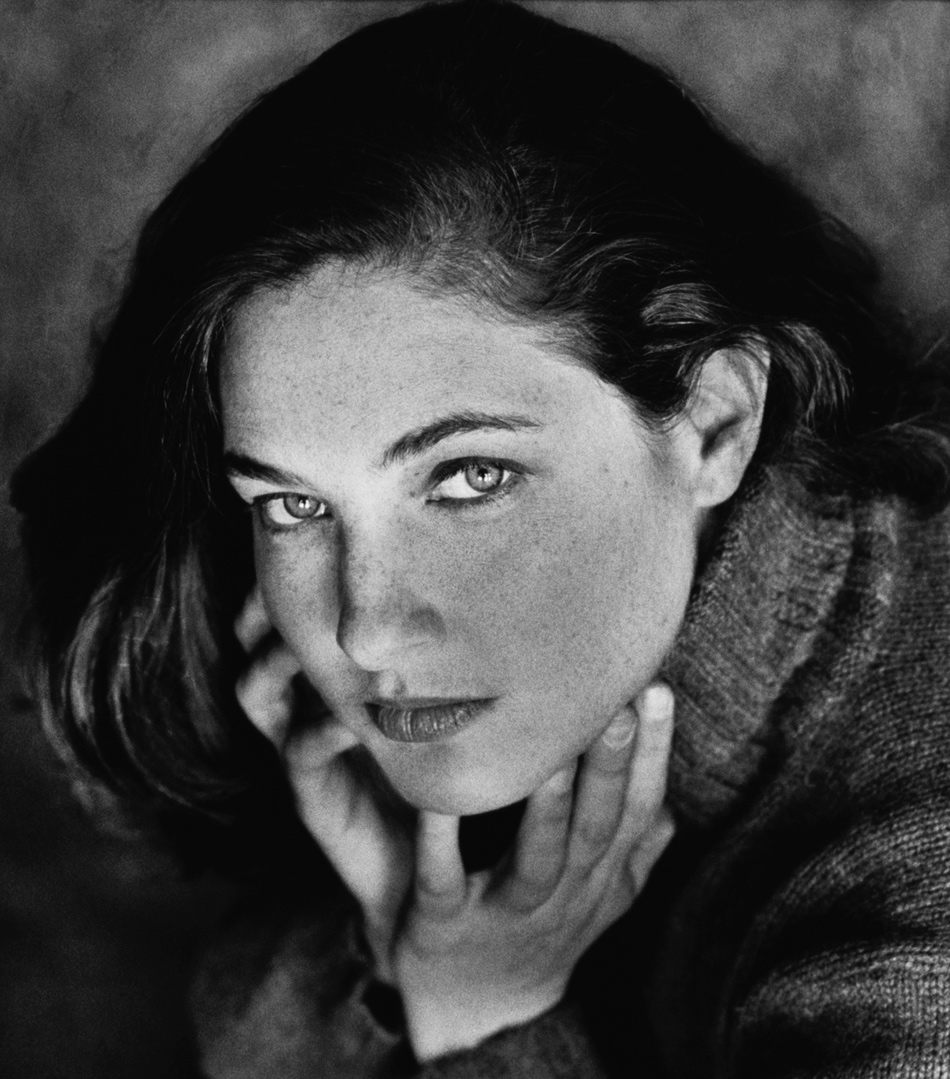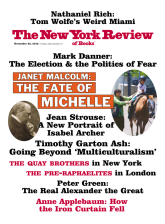A.M. Homes loves crises in suburbia. She begins many of her books in medias res and never lets up. Her dialogue is extremely funny, worthy of a stand-up comic—rapid and raw. The action is unrelenting and endlessly inventive. Just when the reader thinks she can’t top that, she does.
May We Be Forgiven covers a tumultuous year from one Thanksgiving to another. It begins with the narrator clearing the dishes of the many guests for his brother’s wife; she kisses him when they’re alone in the kitchen. A few months later he is in bed with her, wearing his brother’s pajamas. The brother, they believe, is being held in the psychiatric ward of a local hospital after he has run a light and smashed into a car and killed two people; unbeknownst to the adulterous couple, he has escaped the ward, walked home, and crept up to the bedroom, where he smashes in his wife’s head with a lamp. Eventually Jane dies and is buried by page fifty.
Mind you, these people are rich and “civilized.” The murderer, George, is the head of a TV network and has a shelf full of Emmys to show for it. The children, Ashley and Nate, are both enrolled at exclusive boarding schools. The son has a bar mitzvah that must have cost more than a hundred thousand dollars, all paid for out of the institutionalized father’s limitless account. The ceremony is held in Natesville, a village in Africa the son has bankrolled. Everything—plane tickets, caterers, presents, chauffeurs—is provided without a second thought.
The narrator, Harry, moves into Jane and George’s house—and inherits their dog Tessie and their two children, who come home to see their hospitalized mother and then attend her funeral. George’s clothes fit him. His own high-powered Asian wife, Claire, seems at best indifferent to him; when she discovers from the New York Post that he was sleeping with his sister-in-law, she angrily files for divorce. When he tells her that Jane is on a ventilator, she absent-mindedly says, “I’m glad she’s feeling much better.”
The children are more mature than the adults (as in Joy Williams’s fiction), though they’re terribly precocious:
When Ashley excuses herself to go to the bathroom, Nathaniel leans over.
“Did you fuck my mother?”
I don’t answer.
“She was into you; she used to tease my father by talking about you.”
Again, I say nothing.
“Where is Dad?” Ashley asks when she gets back to the table.
“He’s here.”
“This hospital?” Nate asks.
I nod. “Do you want to see him?”
“Should we see him?” Ashley asks.
“Entirely up to you.”
“I need to think he’s dead,” Nate says. “That’s the only way I can make sense of it. He did this and then turned the gun on himself.”
“There was no gun,” I say.
“You know what I mean. Why didn’t you stop him, why didn’t you kill him?” Nate asks.
Why didn’t I?
This high-voltage passage is typical of the narrative. The paragraphs are snappy and short, the dialogue is a form of jousting when it’s not outright shocking, and there’s not a descriptive word too many. You can almost glimpse the film scenario already lurking in the prose. In a typical scene, a suburban woman met online is giving a blowjob to the narrator when her son comes home for his hockey stick. She stops fellating the stranger only long enough to call out to her son that she made brownies.
The narrator is a college professor who can’t seem to make any progress on his book on Nixon, and he’s fired by an administrator who poses as a friend. Everyone in Homes’s universe is hateful. Everyone screams “Fuck!” into the phone. An amusement park ride operator says his lonely off-season job “beats sitting home with my wife.” Students turn in theme papers with titles like “BLOW JOB or WAR: The Testosterone Paradigm.” In the hospital where Jane has donated her organs, nurses run past with Igloo coolers labeled “Organ for Transplant—Human Eye.” The rabbi at the funeral speaks in phony, unctuous tones. Accountants pass out refrigerator magnets with their contact information as the bereaved gobble cheeseburgers. The dead woman’s father tells the narrator in grief and rage, “You should cut your dick off. You should have to live without something precious to you.”
Do people talk that way to one another? Maybe under the stress of great emotions, or perhaps Homes is giving voice to the unconscious like Eugene O’Neill in Strange Interlude. It’s the voice of our barbarous age in which an expensive mental hospital, the Lodge, can convert overnight into a business conference center in order to harvest greater profits. A crucial, clarifying passage comes midway through the novel. The narrator is thinking:
Advertisement
There is a world out there, so new, so random and disassociated that it puts us all in danger. We talk online, we “friend” each other when we don’t know who we are really talking to—we fuck strangers. We mistake almost anything for a relationship, a community of sorts, and yet, when we are with our families, in our communities, we are clueless, we short-circuit and immediately dive back into the digitized version—it is easier, because we can be both our truer selves and our fantasy selves all at once, with each carrying equal weight.
One of Nixon’s daughters unexpectedly contacts him and makes available to him some previously unknown short stories written by the young Nixon. This windfall reenergizes him and propels him to finish his study.
Perhaps the strongest character in the book is George, the murderer, who is pictured as a lifelong bully and womanizer, terrorizing and wounding all the people around him. He is a powerful, demonic force, and the mild-mannered people who enter his magnetic field are powerless against him. This novel is a satirical, wonderfully reimagined variant on the Cain and Abel theme. More relevantly, May We Be Forgiven is as relentlessly avid in enumerating comical modern horrors as Martin Amis’s Money, although it avoids the modernist hijinks of that book. Unfortunately, Homes’s novel has a saccharine happy ending, as if family members had complained to the writer that she mustn’t always dwell on the dark side of life.
Homes is an adopted child, the subject of her brilliant, nonstop autobiography The Mistress’s Daughter (2007), and her soppiest utopian visions are of a reconstituted “alternative” family. Sharing ice cream, going on amusement park rides, embracing animals, or rescuing old relatives from nursing homes—these are her “positive” if impoverished images of family bliss, and bliss is invariably a group experience in her ethical world. A wistful sentimentality lies under her satirical stings.
Most of Homes’s fiction begins with a shocking premise. This Book Will Save Your Life (2006) starts with a rich investor living in his luxurious California home, visited only by his nutritionist, his trainer, and his housekeeper, who suddenly is subjected to a scalding pain, the cause of which is thought to be undiagnosable. And then an inexplicable sinkhole begins to expand behind his well-appointed house decorated with museum-quality paintings. These two events—the pain and the sinkhole—force the investor out of his splendid isolation. By the end of the book he is reconciled with his neglected gay son, who gets drunk and tries to bugger him. He’s also newly on speaking terms with his ex-wife, he’s financing an immigrant donut maker, and he’s attending an “Iron John”–style all-male picnic on the beach. Once again a funny satire devolves into a sentimental picture of a wounded but healed alternative family.
In Jack (1989), Homes’s first novel, a son must deal with his father, who has just come out. “I stayed in my room all night, trying to figure out how my father could be queer. I mean, historically, queers are not fathers,” Jack muses. The kid is traumatized but by the end of the book everyone attends his sixteenth birthday—his father and his father’s lover Bob and his mother and his best friend Max and Max’s divorced parents plus Bob’s supercool daughter Maggie—and Jack in an embarrassed teenage way likes all the attention but finally runs outdoors to dribble a basketball. In Homes’s short story “Looking for Johnny,” from her collection The Safety of Objects (1990), a boy is abducted by a pedophile who returns him untouched because he is too nerdy, not enough the boy-next-door. Music for Torching (1999) begins with a couple (so unhappy that they both cry during sex) setting their own hateful house on fire.
A.M. Homes is one of the most acclaimed younger novelists in America, and she deserves her reputation. In May We Be Forgiven the narrator goes to a modernist house for an assignation but the woman’s eleven-year-old son slaps some handcuffs on him and quizzes him. The thirteen-year-old daughter explains that their mother is in the city having lunch with their father in an effort to save their marriage. The kids, though they know the stranger has been lured there by their mother, are hoping to act out an episode from To Catch a Predator—a pedophile-entrapment TV program. The narrator says:
Look, kids, I hope this doesn’t sound bad, but, despite the fact that you kidnapped me and held me against my will, you seem like good kids—you made nice snacks, you both worry about your parents and wish they showed the same concern for you, and that’s really not asking too much. What about offering your parents a Get Out of Jail Free card? Offer them their freedom and ask them to give you up for adoption? Do you know how many people would love to have housebroken—I mean potty-trained—white, English-speaking children?
There is no absurd scene (e.g., conversation with the neglected children of an Internet date while being held hostage) that Homes is unable to imagine and explore. The indecencies of suburban family life are her material as a writer as though she were John Cheever updated by Gary Shteyngart. It may seem that there is no nightmare of the upper-middle-class in America that Homes has not dealt with, but trust her to find more.
Advertisement
This Issue
November 22, 2012
The Politics of Fear
The Winner: Dysfunction
Election by Connection




